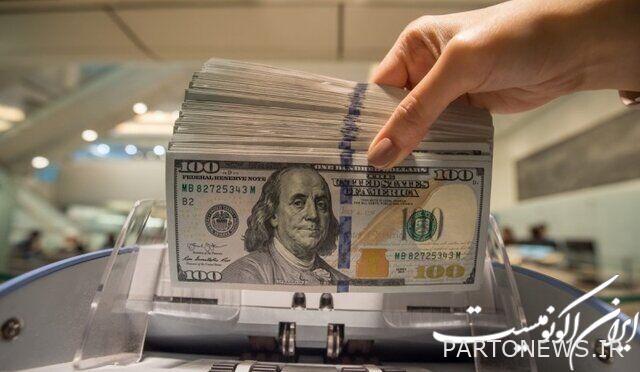The conditions for the supply, transportation or storage of currency were determined by the people

According to the Iran Economist, the President on Tuesday this week “amended the Law on Amending the Law on Combating Commodity and Currency Smuggling” to be implemented at the Central Headquarters for Combating Commodity and Currency Smuggling in the Presidential Institution, Ministry of Economic Affairs and Finance, Ministry of Industry, Mines and Trade , The Ministry of Interior and the Ministry of Justice announced.
The Amendment to the Law on Combating Commodity and Currency Smuggling provides for severe penalties for the supply, transport or storage of these currencies by determining instances of currency smuggling. According to the amendments made in the new edition, the status of currency transfers, authorized foreign currency assets of individuals, as well as cases of currency smuggling and its penalties have been changed.
According to what has been approved by the Islamic Consultative Assembly, “foreign currency entering or leaving the country” as well as “any attempt to leave the country”, “without observing the relevant rules determined by the Monetary and Credit Council within the limits of legal authority.” Examples of currency smuggling are considered.
Terms of supply, transportation or storage of currency
According to this law, in order for foreign exchange transactions to be regulated, sales must be registered in the foreign exchange system of the Central Bank. Also, in order to avoid being subject to the label of currency smuggling and its consequences, کردن.
Paragraph H of the repeated Article 2 of the above amendment emphasizes in this regard that “supply, transport or storage of currency without a valid purchase invoice or without an entry license by persons other than an exchange office, bank or credit financial institution licensed by the Central Bank” is an example of currency smuggling. And, of course, it is specified that “the entry of currency into the country up to a ceiling set by the Central Bank is excluded from the scope of this paragraph.”
The same paragraph reads: “Currency holders are obliged to pay the currencies they had before the entry into force of this law and in excess of the amount of portable currency exemption and maintenance declared by the Central Bank and without a valid invoice within three months. “Register information in the system.”
Thus, people who keep home currency should be aware that after the implementation of this law, if they do not register their foreign currency assets in the system, it may be treated as a smuggled goods.
Rial transfer criteria
The new version of the law amending the law on combating smuggling of goods and currency also pays attention to the transfer of national currency.
The law states in this regard: “Importing, exporting or exporting the common currency of Iran without observing the criteria set by the Monetary and Credit Council, which is determined within the legal authority of this council, provided that the competent authorities “Citing escape to existing evidence and the UAE is also subject to a fine for a recent violation.”
What do the current rules say?
According to the executive instructions related to determining the amount of portable currency, storage and exchange within the country, which was notified to the banking network in June 1999, each passenger can enter up to 10 thousand Euros or equivalent in other currencies and up to 5000 Euros or equivalent It will export to other currencies through air borders, up to a maximum of 2,000 Euros or the equivalent in other currencies through land, rail and sea borders. Also, the amount of entry and exit of Rials by each passenger is allowed up to a maximum of 500,000 Tomans.
It should be noted that in June 1999, the Supreme Economic Coordination Council authorized the entry of foreign currency in the form of banknotes into the country without restrictions in accordance with the rules and regulations of the Central Bank of the Islamic Republic of Iran and anti-money laundering regulations by individuals and legal entities. Was.
Punishment of smuggled currency sellers
Article 18 of the Law on Combating Commodity and Currency Smuggling deals with the cash penalties of currency smugglers, which have been amended in recent editions, paragraph
Accordingly, the law is amended as follows: “The fine of incoming currency, one to two times its rial value and the cash penalty of outgoing or outgoing currency, two to four times its rial price, and in other cases the currency was not confiscated and “Only the equivalent of the rial price of the currency will be taken as a fine.”
Silver Cyberspace smugglers
The amendment to Note 1 of the article also states: “The supply or sale of smuggled goods subject to this article is prohibited and the perpetrator, in addition to confiscating the goods, shall be sentenced to the minimum penalties provided for in this article.” “If the smuggled goods are offered or sold through the media or cyberspace, such as social networks, websites or text messages or telephone calls, the perpetrator will be sentenced to double the value of the smuggled goods in addition to confiscating the goods.”
In addition, the beginning of Article (21) of the law has been amended as follows: In case of disclaimer, the accused will sign it, and in case of refusal, the goods will be confiscated and the goods will be confiscated and delivered to the collection and sale organization of the property along with the minutes, and the discovered currency will be transferred to the account specified by the Central Bank. The Islamic Republic of Iran will be notified of the deposit and a copy of the papers.

